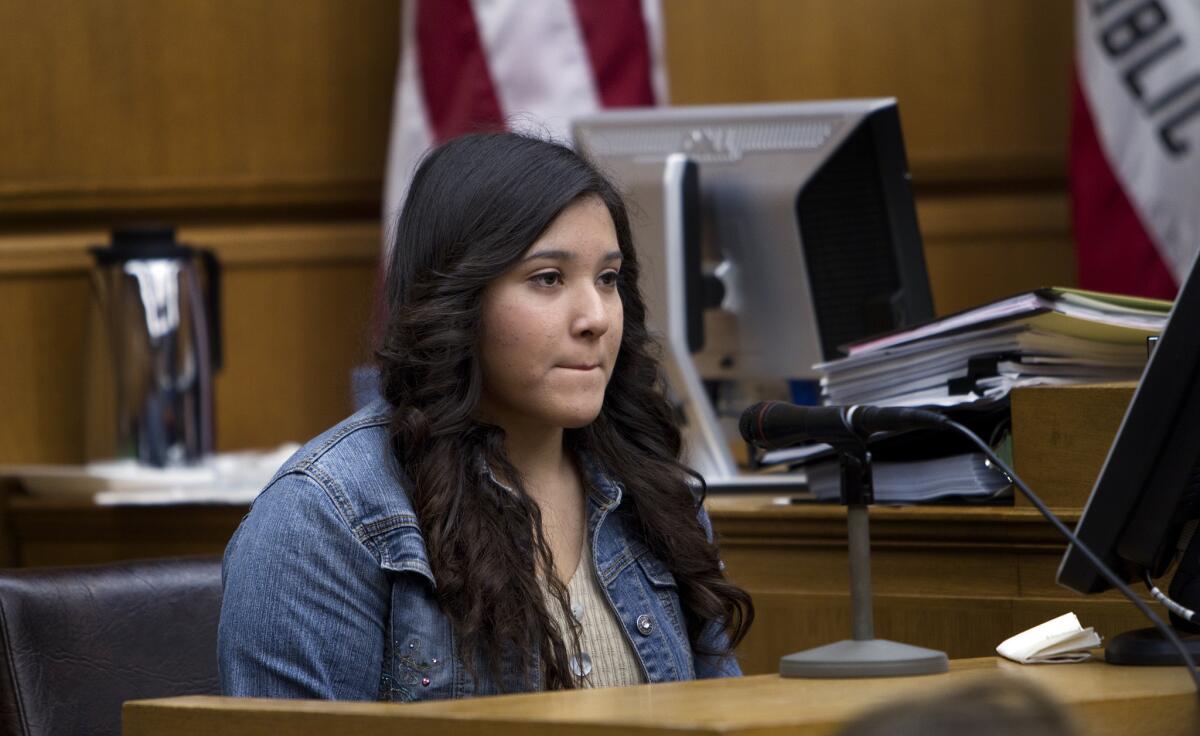Poll shows state voters are willing to weaken teacher job protections

- Share via
California voters support weakening teacher job protections that were the subject of a high-profile trial in Los Angeles, according to a poll released Thursday.
In that lawsuit, Vergara vs. California, advocates overturned rules that made it harder to fire teachers than other school and state employees. In his ruling, L.A. Superior Court Judge Rolf Treu also threw out using seniority to determine which teachers are laid off. Treu wrote that these regulations made it more likely that students -- especially poor and minority ones -- would receive an ineffective teacher.
The poll, conducted by Policy Analysis for California Education, a Stanford-based research center, and the USC Rossier School of Education, found that among voters who had followed the lawsuit a lot or a little, 62% agreed with the verdict; 23% disagreed and 15% did not take a side. The percentage agreeing with the decision was slightly higher -- 67% -- among parents polled.
The questions also dealt with specifics of the case, which included the strong job protections of teacher tenure. The judge struck down the current process, under which teachers earn these protections after about two years. Teacher unions have vowed to appeal the decision.
In the poll, 21% said two years or fewer was the right time period for tenure; 38% said two years is too soon and 35% opposed tenure entirely.
On the issue of seniority-based layoffs, 68% agreed with this statement: “We should do away with the Last In, First Out policy because it hurts students by requiring school administrators to lay off talented young teachers before low-performing senior teachers when staff reductions are needed.”
And, 17% agreed with this statement: “We should keep the Last in, First Out policy because the policy creates job stability that enables school districts to attract and retain quality teachers, despite low pay and difficult working conditions.”
The remainder did not make a choice.
“The majority of California voters polled have expressed views that are consistent with Judge Treu’s recent decision in Vergara,” said Julie Marsh, associate professor at the USC Rossier School.
“These views may give pause to those appealing the decision,” added Marsh, who has expressed support for the lawsuit.
A union leader defended the job protections and said that public opinion has been shaped, in the short term, by a well-funded publicity effort.
“When we talk with parents and community members out of the glare of public relations campaigns, they understand the real issues facing public education, and the need to build a positive vision for it, that doesn’t blame teachers or students and their parents,” said Joshua Pechthalt, president of the California Federation of Teachers.
Overall, only 42% of poll respondents said they had at least some familiarity with the case.
Among other topics, the poll asked about Common Core State Standards, a set of learning goals adopted by more than 40 states, including California. The goals are supposed to promote deeper thinking and have been accompanied by new, computer-based tests.
The poll found that more people have become aware of Common Core -- 47% compared to 29% last year. Among parents, 58% knew at least something about the subject.
California was supposed to be a bastion for Common Core and it has been backed by elected officials, unions and school districts.
But among voters familiar with it, only 38% said they had a very positive or somewhat positive impression of Common Core; 44% chose somewhat negative or very negative.
The poll sample was designed to mirror likely California voters rather than the general population: 67% were white; 17% Latino; 8% Asian or Pacific Islander; 6% black. The margin of error was 3.5% in either direction; higher for the sample of parents.
More to Read
Sign up for Essential California
The most important California stories and recommendations in your inbox every morning.
You may occasionally receive promotional content from the Los Angeles Times.














